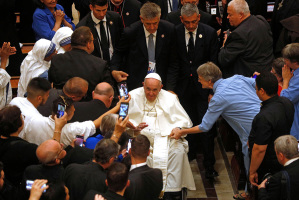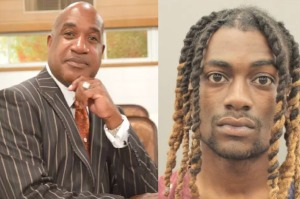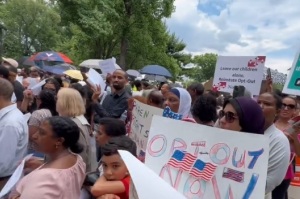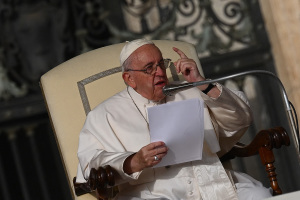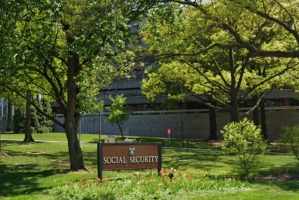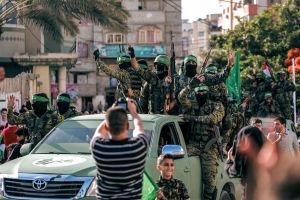Navy Chaplain Ends Hunger Strike for Jesus' Name
A Navy chaplain protesting for the right to pray in Jesus’ name during public worship ceremonies while wearing his uniform, ended his 18-day hunger strike on Saturday after he says the Navy gave him permission to do so.
WASHINGTON – A Navy chaplain protesting for the right to pray in Jesus’ name during public worship ceremonies while wearing his uniform, ended his 18-day hunger strike on Saturday after he said the Navy gave him permission to do so. A Navy official said guidelines for prayer vary according to the setting and are not mandatory.
Claiming a victory for religious freedom in the Navy, Chaplain James C. Klingenschmitt also participated in a public worship service on Saturday in front of the White House as a pastor and worshippers joined to sing hymns, hear a sermon and receive communion from the evangelical Episcopal priest.
"Today the Navy has reluctantly obeyed the law – to grant me the religious liberty I always should’ve had," the chaplain said in a statement released through his website.
However he said the battle for rights would continue. “I won't stop fighting until every chaplain has the same rights I have today," he stated.
Klingenschmitt referred to an executive order that 74 members of Congress have signed asking that military chaplains be allowed to pray according to their conscience, regardless of their religion and in any situation.
"Mr. President, please sign the executive order to enforce the law since 1860 that allows ALL military chaplains to pray according to their divers faith, in all settings, private and public."
Lt. Kathleen Sandoz, a Navy spokeswoman said that Klingenschmitt had never been told not to wear his uniform at a public worship service. He had also not been forbidden to pray in Jesus’ name, she added.
According to Sandoz, there are no restrictions on prayers for voluntary public worship services while wearing the uniform. However, military personnel cannot criticize the Navy or express personal views while wearing the uniform.
In Kligenschmitt’s case on Saturday, the chaplain waited until after the worship service to hold a press conference where he changed out of the uniform.
Sandoz also explained that current military guidelines call for chaplains to be more inclusive and pluralistic at “command functions,” which include change-of-command ceremonies, where military personnel are required to attend.
She said that in those situations, chaplains are encouraged to pray in more general terms. For example, using “God” when giving a benediction is suggested instead of praying specifically, using terms from a particular faith.
Kligenschmitt believed he had been restricted from wearing his uniform at any event where a member of the media might be present. He ended the fast when he received a letter from his commanding officer stationed in Norfolk, Va., on January 6 stating that Klingenchmitt could wear his uniform at any event of “bona fide public worship.”
















